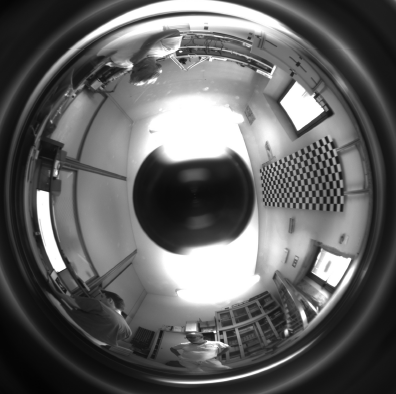
2014-2016: the interdisciplinary network MathMPI funded by the german research foundation (DFG) studies mathematical methods for Magnetic Particle Imaging (MPI).
2023-2025: the project CEMI investigates and implements new computational methods for the reconstruction, analysis, modeling and interpretation of medical imaging data.

2023-2025: the interdisciplinary project ALISIA studies mathematical models and algorithms for immersive imaging with astronomical wide-angle cameras.
Mathematical Methods for Magnetic Particle Imaging (MathMPI)
Funding: 2014-2016, German Research Foundation (DFG), young researcher network
PI: Wolfgang Erb
Participants: Mandy Ahlborg, Christina Brandt, Thorsten M. Buzug, Wolfgang Erb, Jürgen Frikel, Christian Kaethner,
Tobias Knopp, Thomas März, Martin Storath, Andreas Weinmann
Description: Mathematical Methods for Magnetic Particle Imaging (MathMPI) is an interdisciplinary network of young
scientists supported by the german research foundation (DFG).
Its central goal is the development, analysis and application of mathematical methods for Magnetic Particle Imaging (MPI).
Magnetic Particle Imaging (MPI) is an emerging imaging modality that determines the spatial distribution of magnetic nanoparticles by measuring the non-linear magnetization response of the particles to an applied magnetic field. MPI offers a high dynamic spatial and temporal resolution and, in contrast to other tomographic methods such as CT and PET, it does not employ any ionizing radiation. This makes MPI a very promising imaging modality for biomedical diagnostics.
This project addresses for the first time the systematic study of mathematical questions related to MPI. The primary goal of this network is the development, analysis and application of mathematical methods to improve the reconstruction quality in MPI. In particular, taylored to the specific needs of MPI we develop elaborate reconstruction algorithms, analyze and refine the underlying MPI models and test the new methods numerically on real biomedical data.
To achieve these goals this network provides an interdisciplinary platform for researchers from various scientific fields including applied mathematics, modeling, image processing, medical physics as well as electrical engineering. During the whole period of the project, several meetings and workshops will be organized to address and study mathematical problems related to MPI.
Computational Methods for Medical Imaging (CEMI)
Funding: 2023-2025, Italian Ministry of University and Research
(MUR), PRIN 2022
PI: Cristina Campi
Co-PI: Wolfgang Erb
Participants: Federico Benvenuto, Cristina Campi, Stefano De Marchi, Wolfgang Erb, Mohammad Karimnejad Esfahani, Federico Nudo,
Sara Sommariva
Description: The research project Computational mEthods for Medical Imaging (CEMI) funded by the Italian Ministry of University and Research
(MUR) investigates the implementation of computational methods for the reconstruction, analysis, modeling and interpretation of
medical imaging data. The mathematical pillars of this project are the theory of inverse problems, data approximation and analysis,
pattern recognition and compartimental analysis, while machine learning methods are employed both for the
implementation of regularizers as well as for the classification and stratification of patients on the base of features extracted
from biomedical images. This projects aims at building a series of computational tools for application in medicine,
in particular to oncological diseases like brain tumors.
We expect CEMI to have multidisciplinary impacts, both on a theoretical level with new results in numerical analysis and data
processing methods, as well as in the applications to medicine. The research related to this last part will be carried out
on real experimental medical imaging data, thanks to the fact that the project participants have very strong, long-lasting
connections with clinical facilities.
The units involved in this project are two: Università di Genova and Università di Padova, and the participants of this project
belong to the respective mathematical departments. The PI of the project is also affiliated to the IRCCS Ospedale
Policlinico San Martino, Genova.
ALgorithms for Immersive Stereoscopic Imaging with Applications to the Daedalus camera system (ALISIA)
Funding: 2023-2025, local funding by the Department of Mathematics, University of Padova, SID 2023
Scientific responsible: Wolfgang Erb
Partners at INAF: Claudio Pernechele, Emanuele Simioni
Participants: Stefano de Marchi, Wolfgang Erb, Claudio Pernechele, Emanuele Simioni
Description: ALISIA is a cooperation with the Istituto Nazionale di Astrofisica (INAF) at Padova.
It aims to analyse, create and assess mathematical models and numerical methods for immersive stereographic imaging with the Daedalus camera system. This optic
camera designed for the exploration of lunar caves is composed of four Bifocal Panoramic Lenses (BPLs) allowing a complete view of the
surrounding space such that every 3D point is registered with at least two lenses. The mathematical challenge for the imaging with these
lenses is their complex mapping function that leads to a non-trivial epipolar geometry when registering a 3D point with two different lenses.
Goal of this project is to find a mathematical formalism and the geometric constraints determined by the epipolar geometry of these lenses.
Furthermore, we want to determine efficient numerical algorithms able to register the points in two different BPL-images and a
super-resolution procedure able to combine the low- and high-resolution components of the cameras into a single high-quality reconstruction
of the surrounding space.
 University of Padova
University of Padova University of Hawaii
University of Hawaii University of Lübeck
University of Lübeck arXiv Preprints
arXiv Preprints ResearchGate
ResearchGate